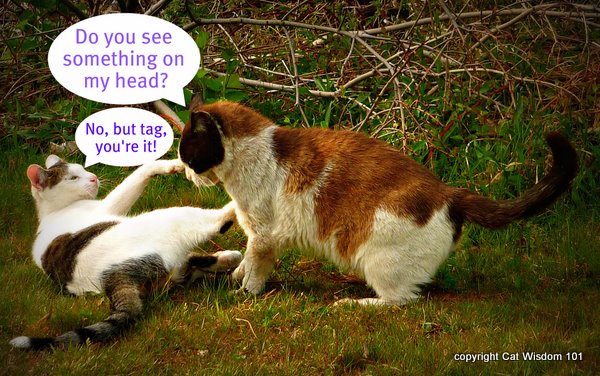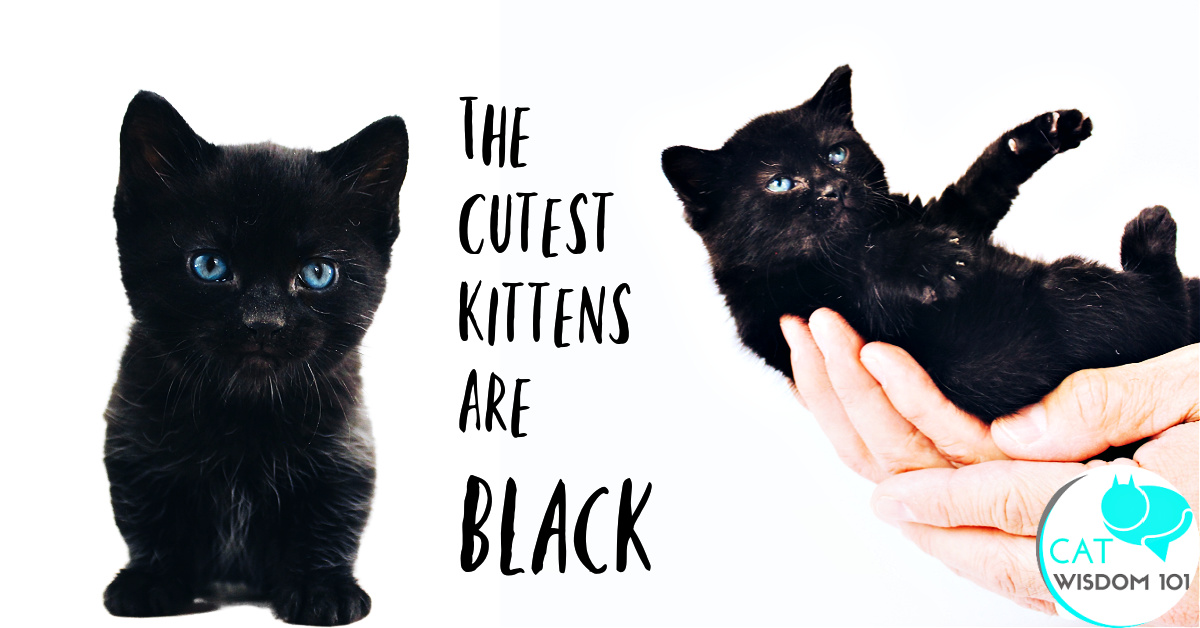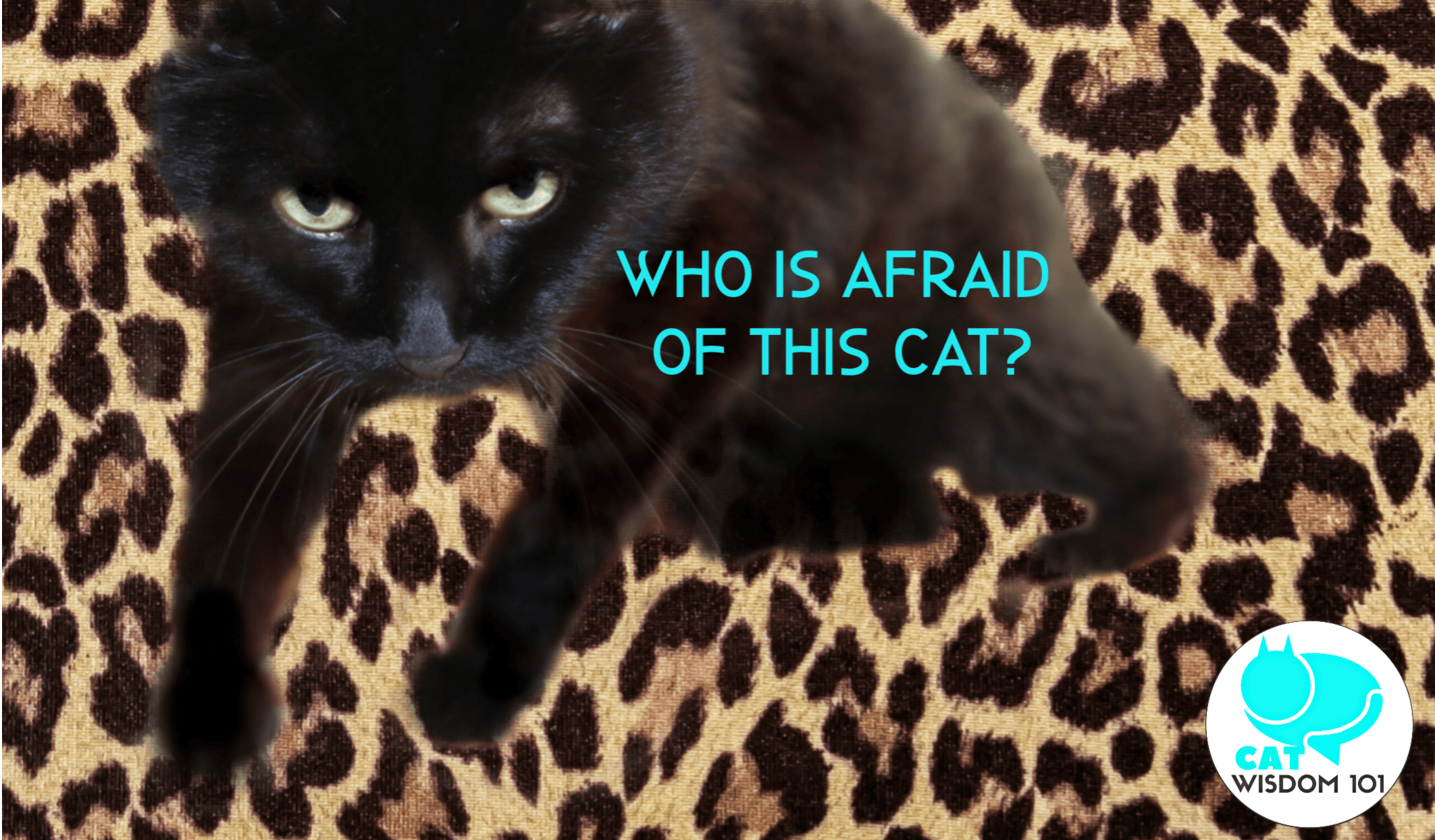
Fleas, Ticks and Itchy Oh My!
Flea & tick season is here, along with a flurry of Internet buzz about the spread of The lone star tick, Amblyomma americanum, found throughout the southeastern and south-central states. It does not transmit Lyme disease and our vet, Dr. Rich Goldstein assured me is not found in the New York area. That said, these small brown/tan colored ticks with a distinctive white spot on the middle of their backs (females) of tick can carry diseases such as ehrlichiosis, Rocky Mountain spotted fever, and tularemia. All the more reason for flea and tick prevention and our the subject for this week’s Q & A with Dr. G.
Question:
My dog gets a monthly flea and tick treatment. Does my strictly indoor cat need anything? I’d rather not spend the money. How do you feel about the different product choices in terms of safety/cost & convenience?
Answer:
Welcome to Spring! And welcome to flea season. I guess we have to take the bad with the good, right?
Flea control is one of the most important things we can do for our pets (unless, you live in one of those flea-free parts of the country – lucky you!). Not only are fleas the number one cause of severe allergic reactions and skin conditions, but they can also spread diseases, such as Bartonella,(which causes Cat Scratch Fever in people) and tapeworms.
Fleas are brownish bugs, about 1/8th of an inch long, with powerful legs that enable them to jump very long distances. Female fleas can lay 25 eggs per day and can live for 2 years. That’s a lot of fleas!
The life cycle of the flea is important to understand in control. Adult fleas prefer to live on dogs and cats (notice I said dogs AND cats…), but they will also jump on people. They lay their eggs on the dog or cat, which then fall into the environment. Immature fleas (larvae) thrive in dark, humid places, such as your pet’s bedding, carpets, furniture, and cracks and crevices in bare floors. The larvae develop into pupae. In warm weather (and we’ve had plenty of that in the Northeast!), the pupae develop into adult fleas, and the cycle starts again. For every flea you can see, there may be hundreds more that you can’t see, lying in wait.
There are many options for treatment of fleas now, ranging from topicals that last a month, to oral medications, to homeopathic remedies. Many products have been around for a decade or more, and have a proven safety record. It is important for you to discuss the available products with your vet to see which is most appropriate for your pets.
So, who should you treat? Let’s go back to the life cycle of the flea. They prefer dogs AND cats. Suppose your dog has fleas and you treat him with a topical product. Sometimes when topical products are applied, you may actually start to see more fleas. This is because the fleas are using their powerful legs to run for their lives to try to escape from their hiding spots in the dog’s coat. And where’s the next best place to safely escape to? The untreated cat!! In addition, fleas can enter into the house on your clothing, through screens, and, if you’re in an apartment, from the neighbor’s pets!
So, unless your kitty lives in a plastic bubble, treat the cats. This is one situation where an ounce of prevention is worth a pound of cure. Or, in other words, a few dollars towards prevention can be worth hundreds in savings for treatment.




16 Comments
Heidi19
Nice site! really love all the info and work you’ve put in making this post. It is very important to take precautions in giving our pets the care and love that they need. Thanks for sharing this to us!
Karyn18
That picture made me really laugh. By the way, fleas are also problems of my dogs. I kept on buying them the fleas powder but it’s not that effective.
Kathy Thompson
Fleas and ticks are bad news here in Va. Sadly a lot of folks in this area don’t take any preventitive measures and everyone pays the price. I also would love to know about any alternatives to the toxic kill drops that we have to use. Super size purrs and kisses to Doc and all
Skeeter and Izzy >^~~^< yuck to fleas!!!
Abby
I vacillate because they hate the topical medication for fleas. I have only had two instances of fleas since 2005. I know that prevention is a good idea but I just hate putting that stuff on their skins when we’ve had such little problems with fleas.
purrs
>^,,^<
♥Abby♥Boo♥Ping♥Jinx♥Grace♥
Katie Isabella
My poor indoor only babies have gotten fleas thru workmen coming in who own dogs. Sometimes I don’t know that the scratching is because of fleas..to me it’s itchiness as the last two cats do have allergies but when one hops on me..I know it’s already too late. I detest having the folks come in for work but ocassionally I must. I can’t quiz them about their pets or if they have (they never do) flea control so this year I am going to try to stop the infestation before it starts.
It sure keeps me from loving on my cats though for several days. I get it on me too if I do. I dfon’t have fleas. 🙂
boomermuse
Katie, thanks for your comment. I never thought about workmen!
Marilia
I hate fleas…. thanks to share!
Lisa (@Ryker_Tyker)
Great minds…we’re going to be talking about this from the “other end” in a week or so on our Medical Issues Mondays, as a local (to us) vet hospital has found a treatment for one of the deadly diseases the Lone Star tick can cause in cats!
Wonderful article – we love your ask Dr. G series!
Brian
We have all been so fortunate not to have that problem!
Caren Gittleman
I have never treated a cat for fleas and I have to second Ingrid’s comment…..I realize indoor cats are supposed to be treated (but I had my Bobo for 18 years who used to go outside on a leash and never had a flea, ever) and now I have never treated Cody…I am considering it.
I do treat Dakota though
Ingrid King
I would love to hear Dr. Goldstein’s recommendations for homeopathic or natural remedies.
boomermuse
Ingrid, I’m currently testing two herbal products and undecided about using the ‘big guns’ like Advantage which he leans towards. Herbal and homeopathic products should not be used together. A healthy cat fed an good diet (like yours)are more resistant to flea infestations and you’d be fine using any homeopathic preventatively. Dr. G. is coming over next week and we’ll decide what we’re doing this summer since this is the first summer Domino is indoor/outdoor.
Ingrid King
I’ll be very interested to hear what you think about the herbal products, Layla. I can’t in good conscience recommend the highly toxic (although very effective!) topical products like Advantage, Revolution, etc., but I have yet to find an herbal product that actually works. I’ve found that for most people, the only natural approach that works is a combination of good diet and environmental management (ie, making your yard unattractive to fleas).
boomermuse
I know, it’s a tough call re: the strong chemicals. To me, they’re a last resort. I haven’t had a cat with fleas in twenty years but saw one recently, to my horror. It’s important to keep the house clean and vacuumed which I know you do.
CATachresis
Yes it’s that time again!! I’ve had some serious run ins with both fleas and ticks. Am very cautious these days
Kathryn
Ched has approved these photos and the message. He is right next to me. In Cabbagetown near Aberdeen, where I had been living in TO, one of the cats got fleas and the owner refused to take it to the vet. We all got flea bites. We said she had to take it. So she did. And we got better.
Our boys don’t go out. Fatter but they don’t get a lot of things.